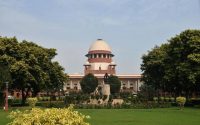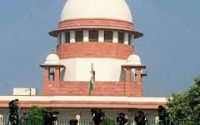$100 Website Offer
Get your personal website + domain for just $100.
Limited Time Offer!
Claim Your Website NowSupreme Court rules against Supreme Court, keeps CJI office under RTI.
Source – hindustantimes.com
The Supreme Court on Wednesday ruled that the office of Chief Justice comes under the transparency law, the Right to Information (RTI) Act, adding that judicial independence cannot be attained by holding back information.
‘Judicial independence and accountability go hand in hand…Transparency strengthens independence,” said Chief Justice Ranjan Gogoi, who heads the five-judge bench. Others on the bench are Justices Sanjiv Khanna, Deepak Gupta, NV Ramanna and DY Chandrachud.
“Judicial independence does not mean that judges are above the law,” observed Justice Chandrachud.
The decision by the five-judge bench of the Supreme Court, led Chief Justice Ranjan Gogoi, who retires on November 17, comes on a petition filed by Central Public Information Officer of the Supreme Court against a Delhi high court ruling of 2010 that held the office of the CJI was a public authority and directed the secretary general of the top court to disclose details of the assets of judges sought by RTI activist SC Agarwal.
Agarwal had in 2007, under the RTI Act, sought a copy of the resolution dated 7.5.1997 of the full court of the Supreme Court, which requires all judges to make a declaration of assets possessed by them.
In 2010, a three-judge bench of the Delhi high court comprising justices AP Shah, Vikramjit Sen and S Murlidhar had held that the office of the CJI is a “public authority” and hence it comes under the RTI Act. But the ruling was challenged in the top court, which stayed the operation of the judgment while admitting the appeal.
The bench had then said: “RTI Act merely recognises the constitutional right of citizens to freedom of speech and expression. Independence of judiciary forms part of basic structure of the Constitution. The independence of judiciary and fundamental right to free speech and expression are of a great value and both are required to be balanced. The current debate is a sign of a healthy nation.”
Arguing the case, earlier this year advocate Prashant Bhushan had submitted to the court: “Disclosure of information is the best safeguard to ensure the right people get appointed and disclosure must be in public and has to be for the public.”
Attorney general of India KK Venugopal, appearing for the Supreme Court, asserted that full transparency will affect judicial independence and details pertaining to judges should not be made public.
The question whether the office of the CJI comes under the RTI Act or not was referred to a constitution bench in 2017. The three-judge bench that made the reference was headed by Gogoi, the current chief justice.
The ruling was on one of the slew of important cases that the Chief Justice will decide before he retires on November 17. Other cases being the review petition in the order allowing entry of women into Kerala’s Sabarimala shrine, defamation case against Congress leader Rahul Gandhi and the review petition on the Rafale fighter jet deal — all will be taken up on Thursday.
The CJI has already pronounced the order on the landmark Ayodhya title suit, granting the disputed land to Hindus and an alternative plot to Muslims. On another important case, that of the disqualification of Karnataks MLAs, the SC while upholding the disqualification, allowed them to contest the December 5 bypolls.



